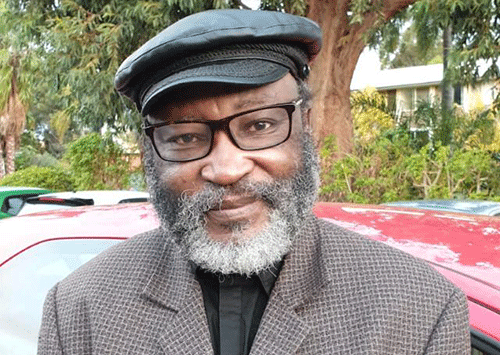A little-known committee under the banner, Otjisuta Otjetu Oveni, has criticised the ongoing genocide negotiations between Namibia and the German government, saying talks will fail because it is taking place in contravention of international conventions on human rights in relation to genocide.
The Australian-based committee president Jeremia Tjatindi this week said the matter should not be between the two governments but between the government of Germany and the descendants of the victims of the genocide with the facilitation of the Namibian government.
According to Tjatindi, the submission and spirit of the motion of September 2006 presented by the late parliamentarian Kuaima Riruako remain that the Namibian government should play a facilitating role in organising, amongst other things, a genocide conference to map out the future of the negotiating process.
“The government of Namibia has deliberately ignored this clause so as to be in charge of the negotiating process, thereby circumventing and violating the rights of the victims,” Tjatindi said.
He said the ancestors of the Herero and Nama communities suffered a great loss of lives as well as movable and immovable properties at the hands of the German troops during the annulation war of 1904 to 1908.
Again, he said, the descendants continue to suffer at the hands of the Namibian government that imposes itself upon the descendants of the said communities to negotiate for the reparation of the crime committed against their ancestors.
He said the descendants demand their rightful centre stage in the negotiation process, which is to negotiate directly with the perpetrator of the crime.
Tjatindi advised government to use a society-centred approach where the descendants and affected communities play a leading role in the negotiation instead of the government-centred approach where government decides on behalf of the communities.
“This process has been a struggle for the past five years; this struggle should be addressed soonest,” he said.
Meanwhile, Prime Minister Saara Kuugongelwa-Amadhila announced in parliament last week that the German government has shown willingness to revise the offer of reparations.
The latest undertaking comes after the initial offer was rejected by the Namibian authorities.
“Germany has indicated that they were willing to give Namibia an amount of money for the implementation of projects. However, this amount is far below meaningful reparations,” Kuugongelwa-Amadhila told lawmakers in the National Assembly while updating the nation on the status of the genocide negotiations between the two governments.
She added the amount is not acceptable to Namibia, given the loss of lives, land and cultural heritage of the affected communities and the impact the genocide has today on the Namibian nation in general.
Tens of thousands of Namibians, mainly the Nama and Ovaherero, were killed in what is called the first genocide of the 20th century. German troops massacred and displaced tens of thousands of Namibians between 1904 and 1908.
In 2015, the two countries started negotiating an agreement that would combine an official apology by Germany as well as development aid.
The negotiations have now taken close to five years.


